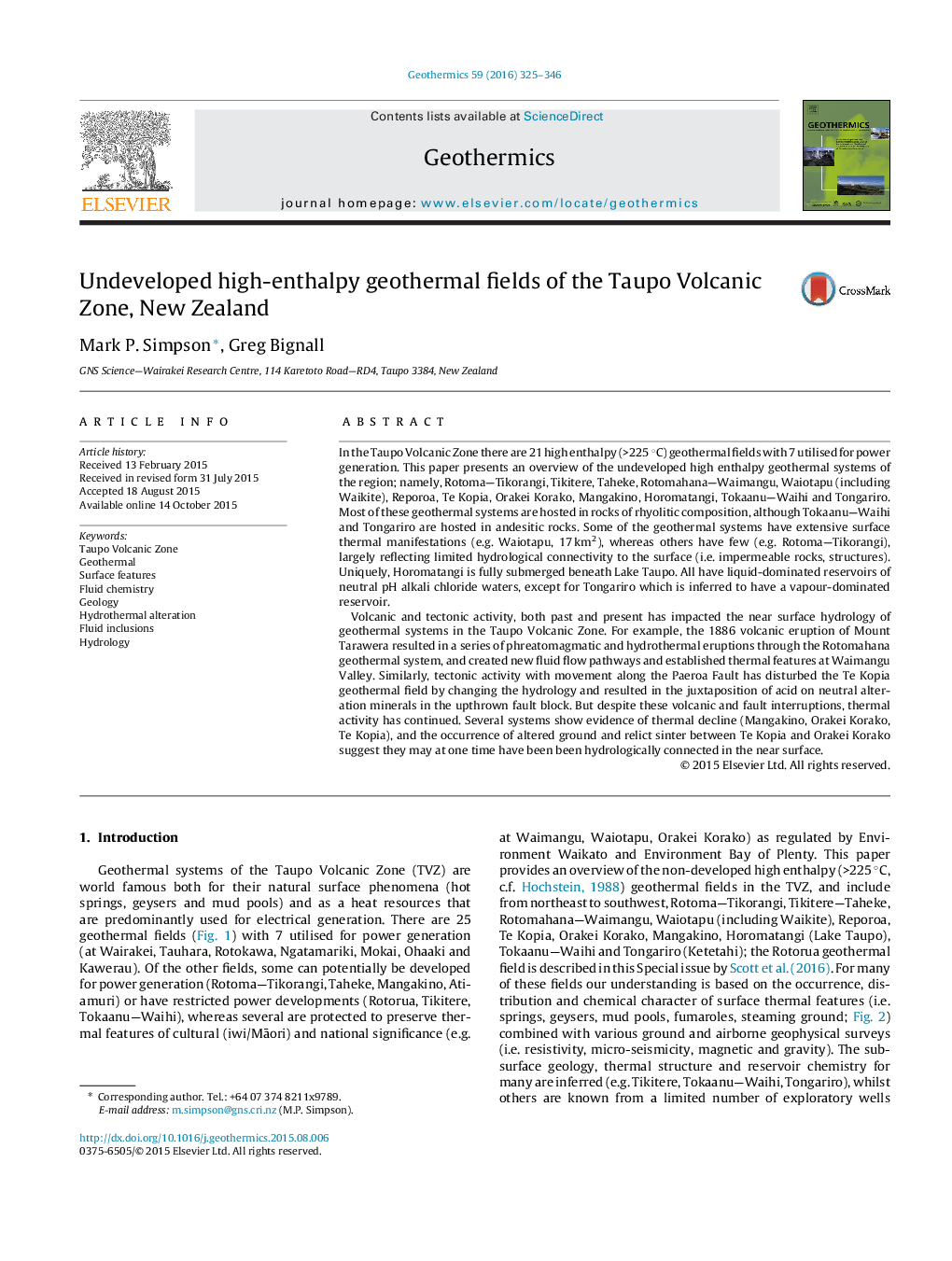| Article ID | Journal | Published Year | Pages | File Type |
|---|---|---|---|---|
| 1742206 | Geothermics | 2016 | 22 Pages |
Abstract
Volcanic and tectonic activity, both past and present has impacted the near surface hydrology of geothermal systems in the Taupo Volcanic Zone. For example, the 1886 volcanic eruption of Mount Tarawera resulted in a series of phreatomagmatic and hydrothermal eruptions through the Rotomahana geothermal system, and created new fluid flow pathways and established thermal features at Waimangu Valley. Similarly, tectonic activity with movement along the Paeroa Fault has disturbed the Te Kopia geothermal field by changing the hydrology and resulted in the juxtaposition of acid on neutral alteration minerals in the upthrown fault block. But despite these volcanic and fault interruptions, thermal activity has continued. Several systems show evidence of thermal decline (Mangakino, Orakei Korako, Te Kopia), and the occurrence of altered ground and relict sinter between Te Kopia and Orakei Korako suggest they may at one time have been been hydrologically connected in the near surface.
Keywords
Related Topics
Physical Sciences and Engineering
Earth and Planetary Sciences
Geochemistry and Petrology
Authors
Mark P. Simpson, Greg Bignall,
